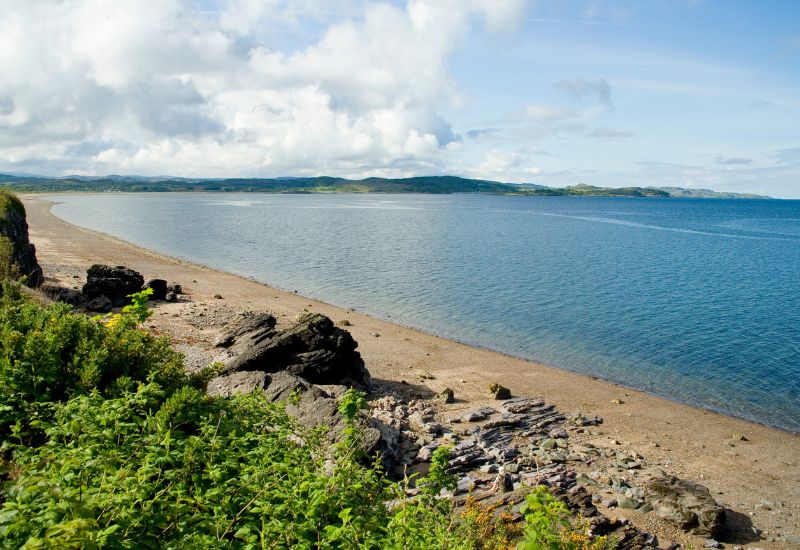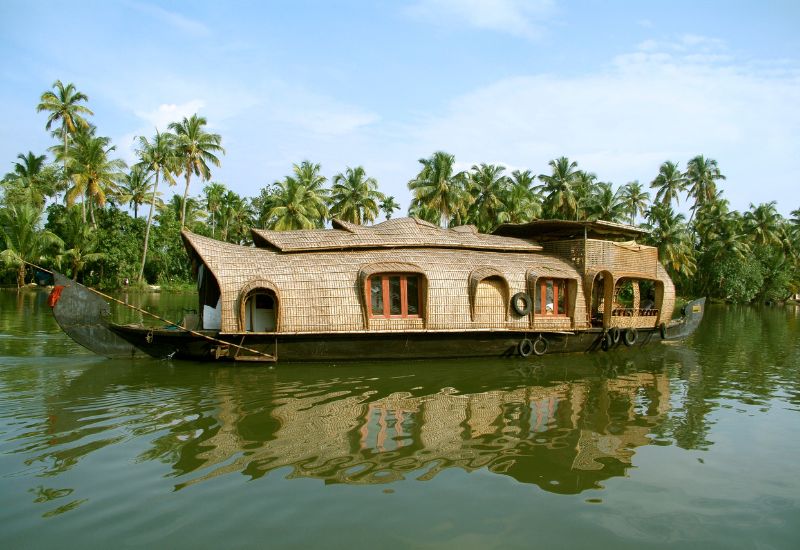Reasons Why Kerala is Called God’s Own Country

Table of Contents
Introduction
Do you know what? As to myth, the Gods created Kerala. You heard me right.
According to mythology, Sage Parshurama, an incarnation of Vishnu, the world’s creator, carved Kerala with his axe. When he hurled the axe into the water, the flood subsided and created the area of land that is today’s Kerala aka gods own country.
Another mythological story claims that King Mahabali formerly ruled Kerala. Even the gods were envious of the happiness and wealth in the kingdom at the time, and they eventually managed to expel him through the personification of Lord Vishnu, known as Vamana. Onam, the state festival of Kerala, is celebrated annually with excitement and zeal to honour the memories of King Bali.
How did Kerala acquire the enchanted slogan “God’s own country”?
In fact, many Malayalees, the sons and daughters of the soil, are unaware of how it acquired that alluring label.
Every traveller who enjoys discovering new places should visit Kerala at least once in their lifetime and put it on their bucket list because it is home to so many magnificent locations.
Kerala has earned the title of “God’s Own Country” due to its breathtaking scenery and plenty of recreational opportunities. Kerala, God’s own country, has a lot to offer tourists and travellers because of its abundance of ecological diversity and natural beauty.
There are plenty of reasons for everyone to justify the label. Let’s check them out here.
Also Check : Things to do in Munnar
Weather

Thanks to its tropical climate, the state enjoys nice temperatures all year round. The landscapes are painted in vivid hues during the monsoon season, which lasts from June to September, giving them a surreal appearance. Kerala is a haven for environment lovers thanks to the invigorating rainfall, which gives life to the lush foliage. Exploring the backwaters, tea plantations, and scenic beaches is made possible by the winter, which lasts from October to February and delivers mild breezes and moderate temperatures. The varied weather in Kerala makes for a wonderful experience that never fails to astound visitors.
When is the ideal time to visit Kerala and explore?
The best time to visit Kerala is in the winter, from September to March when you can enjoy the stunning scenery and comfortable climate. The months of November through February are the ideal ones to visit Kerala’s backwaters.
Coastal Line

Travellers looking for a pleasant seaside escape are drawn to Kerala’s coastline and immaculate beaches by their magnetic attraction. The state’s coastline is home to a variety of coastal treasures, including the famous Kovalam Beach and the tranquil Varkala Beach. A serene atmosphere that instantly calms the soul is created by the golden sands, softly swaying palm trees, and the rhythmic sound of the waves.
Kerala’s beaches accommodate all traveller preferences, whether they are participating in water activities, enjoying mouthwatering seafood, or simply lazing in the sun. Kerala’s seaside experience is genuinely enthralling and unique because of the pristine beauty of these coastlines and the kind friendliness of the natives.
What is the best time to visit the beaches?
Obviously, the serene winter months are from September to March.
Spice Capital
Kerala, the capital of Indian spices since antiquity, is home to an abundance of fragrant and tasty spices. Spice traders from all over the world have been drawn to the state for ages due to the remarkable diversity of spices that have been cultivated by the state’s lush landscapes, fertile soil, and favourable temperature. Kerala’s spice bazaars are a sensory feast, with everything from fragrant cardamom and bright turmeric to spicy black pepper and exotic cinnamon.
The colourful marketplaces, like Kochi’s renowned Mattancherry Spice Market, provide an eye-opening look into the area’s illustrious spice past. Visitors can try regional foods flavoured with spices, explore these markets, and even see how traditional spices are processed while they are there. Kerala’s spice trade legacy has not only shaped its culinary traditions but has also made it a must-visit destination for spice enthusiasts and food connoisseurs alike.
Spices you shouldn’t miss buying from Kerala Spice markets on your next visit?
Pepper, vanilla, cardamom, clove, cinnamon, nutmeg, ginger and turmeric.
Culinary exploration
Exploring Kerala’s cuisine is like discovering a symphony of flavours that dance on your taste receptors. Each meal is a work of art, expertly crafted with a flavourful combination of fresh ingredients and spices. Every taste is a revelation, from the smoky depths of the traditional fish curry, flavoured with tamarind and coconut, to the delicate aroma of steaming appam served with fragrant stew.
Enjoy the perfectly fried crispness of banana chips called Nendran Chips (don’t forget to hoard a bag full of them), give in to the sourness of ripe mango pickles, and let the velvety sweetness of payasam sweep you away. Kerala’s food is a sensory extravaganza, where each dish narrates a tale of history, culture, and diverse flavours that give it its truly distinctive flavour.
The dishes to relish on your next trip to Kerala:
- Puttu and kadala curry
- Appam with stew
- Karimeen pollichathu
- Malabar Parotta with Kerala beef curry
- Pumpkin and lentil curry
- Palada payasam (dessert)
- Kerala prawn curry
- Thalassery biryani
Vegetation and Wildlife

A stunning tapestry of natural beauty is woven together by Kerala’s abundant greenery and diversified animals. A wide variety of plants and wildlife are found in dense tropical woods that are bursting with tall trees.
Kerala’s wildlife is breathtaking, from the imposing elephants that wander the Periyar Wildlife Sanctuary to the graceful Indian bison and elusive tigers of the Wayanad Wildlife Sanctuary.
A variety of bird species, such as colourful kingfishers, graceful egrets, and brilliant migratory birds, can be seen in the backwaters and wetlands. Kerala’s biological splendour is further enhanced by the Western Ghats, a UNESCO World Heritage Site that is home to medicinal plants, rare orchids, and tumbling waterfalls. Both nature lovers and wildlife aficionados will find a mesmerising paradise in Kerala’s exceptional greenery and animals.
Where to explore?
You should definitely explore the ecosystem in Munnar, Wayanad, and Idukki.
Hilly Terrain
Paving excellent trails for hiking and trekking for travellers coming here from around the world. The hills and landscapes of Kerala beckon visitors with their captivating beauty and calming charm. The state, which is nestled inside the Western Ghats, is home to beautiful hills covered with luxuriant tea and spice plantations. The summits blanketed in fog provide breathtaking, soul-stirring panoramas.
Kerala’s hills are a shelter for anyone seeking peace and beauty in nature, whether it is the mesmerising landscapes of Munnar, the tranquilly of Wayanad, or the charming hill towns like Thekkady and Ponmudi. An element of adventure is added by hiking along twisting routes, finding secret waterfalls, and getting to know the local tribes. The hills and landscapes of Kerala actually offer visitors a restorative getaway into the arms of nature.
Bottomline
If you haven’t already, Kerala should be at the top of your list of places to visit. I assure you that you won’t want to miss the captivating beauty that greets you. Discover the pristine beaches, where the tranquilly of the golden sands and calming waters is created.
Explore Kerala’s lively spice bazaar, breathing in the enticing fragrances and tasting the hidden flavours of its culinary gems. Enter the highlands and allow the hazy peaks and luscious tea plantations to take you to a peaceful place. Of course, you shouldn’t forget to go on a wildlife safari to see magnificent animals in their natural habitat. You won’t want to miss Kerala’s treasure mine of adventures.
So, pack your bags and prepare for a journey of a lifetime.
FAQs
1. Is Kerala still God’s own country?
According to Hindu legend, Lord Parasurama, a manifestation of Lord Vishnu, threw his axe across the sea to establish Kerala so that his followers might live peacefully on new territory. Kerala is hence known as “God’s Own Country” because it is God’s own creation.
2. Which state is known as God’s place?
India’s South-Western state of Kerala is frequently referred to as “God’s own country.” Given to its rich green picturesque landscapes and breathtakingly clear coastlines, this magnificent area is appropriately referred to as paradise.
3. What does god’s own mean?
The phrase “God’s Own Country” refers to a place or territory that God is said to favour.
4. Is Kerala heaven on earth?
These breathtaking images of Kerala demonstrate how truly paradisal the state is. Kerala is frequently referred to as “God’s own country,” and for good reason. Kerala is a visual feast that soothes the spirit. Its backwaters are noted for being lined with lovely palm palms.
5. Why is Kerala famous?
Kerala is frequently referred to as “God’s own country,” and for good reason. Kerala is a visual feast that soothes the spirit. Its backwaters are noted for being lined with lovely palm palms.
6. Who named Kerala?
In a third-century BCE rock inscription left by the Maurya monarch Ashoka (274-237 BCE), one of his rules dealing with welfare, the term Kerala is initially written as Keralaputo (son of Chera).